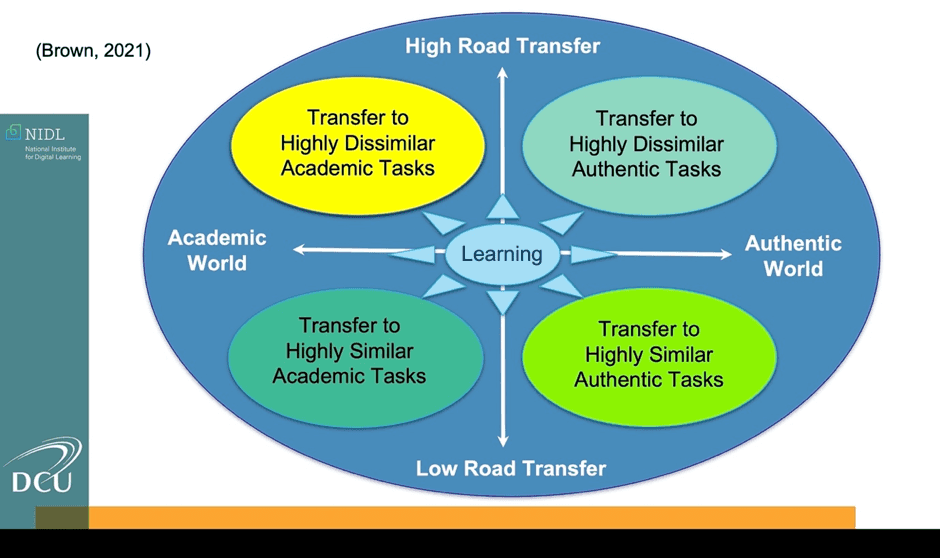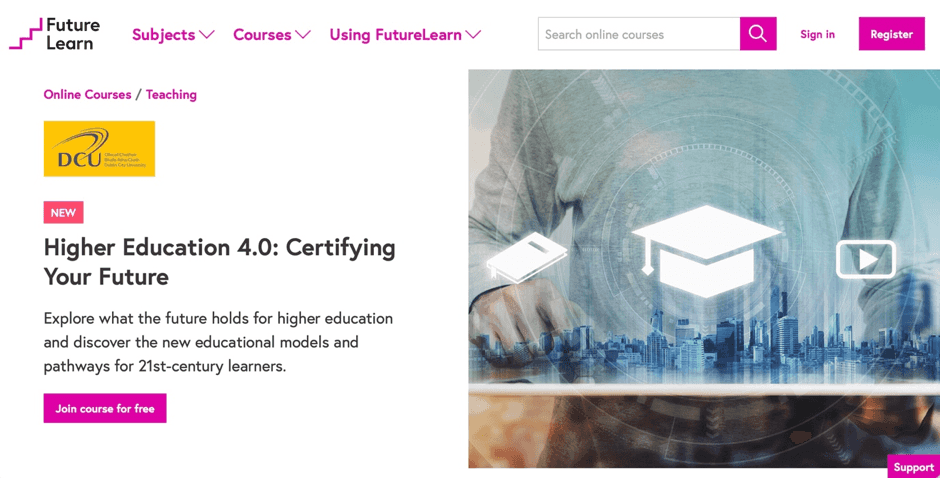
American summer tour! Wooclap will be at Anthology Together 2025
Come say hi at booth 301 from July 14th to July 16th in Las Vegas, Nevada
How can EdTech transform higher education?
23.02.2021 • 6 minutes

During the woobinar we held on the role of education technology (EdTech) in higher education, Ireland’s first Chair in Digital Learning, Professor Mark Brown made the case for fundamental digital disruption.
Instead of trying to “tame” the latest technology, he believes universities should use it to innovate and do things in a new way. Therefore, the question should not be “How should EdTech be integrated in higher education institutions?”, but rather “How can EdTech drive transformational change in the culture of higher education institutions?”.
Because teachers mediate how they decide to use new EdTech based on their pre-existing beliefs about teaching, learning and assessment, some of these beliefs must be challenged if their organisation’s culture is to be transformed.
Due to lack of time, Professor Brown was unable to address all the questions he was asked throughout the woobinar. As the audience clamored for an encore, we promised to provide written answers to their questions at a later date, which has finally arrived!
How would you like to see exams changed?
Professor Mark Brown (P.M.B): The first point to note is that there are many variations to the traditional exam. While students may have a designated amount of time in a traditional exam to provide their hand-written responses to a series of questions, the underlying assumptions about the “assessment of learning”, “assessment for learning” and “assessment as learning” can vary greatly from one lecturer to the next.
Therefore, it’s unhelpful to think of “the exam” as a single monolith form of assessment that doesn’t allow for more innovative approaches. For example, in my own case I used to set an exam as an authentic scenario where students were being interviewed by a selection panel for a new job. The questions were similar to those in an interview by asking the candidates to demonstrate what they knew and whether they could apply this knowledge in practice. In this regard, the selection panel wasn’t interested in textbook memory recall. Like a traditional exam, the simulated interview was a situation in life where people have a time constraint on them to tell and convince someone what they know.
My second and related point is that it’s not the mode of assessment by itself that I would like to see changed but rather how we use this method to assess learning. There may still be occasions in life where you have a time pressure to perform a task using “pen and paper” but this doesn’t happen for me in my job. I do frequently, however, find myself in a situation where there is time pressure on me to prepare a report or compile a presentation, but on every occasion, I can turn to my laptop to help me with this task. Preparing such a report using one’s laptop as a dynamic scratch pad for thinking involves a very different cognitive process. So, to come back to the question, I would like to see the forms of assessment we adopt more generally, whether this involves an exam or not, adopt more authentic practices that encourage learners to apply their knowledge as this is the real test of whether learning has taken place.
How are you managing proctored exams online?
(P.M.B): There has not been much appetite for fully proctored exams in my own university, partly because we have seen the COVID-19 crisis as a strategic way to rethink our approaches to assessment more generally. It doesn’t make a lot of sense to merely replace an old technology (pen and paper) with a new digital solution (online invigilated exams) without some transformative advantages. For geographically dispersed learners there are clear advantages of proctored exams if they can do these in the comfort of their own home without the need to travel. If an online exam can support more authentic approaches to assessment using the types of digital tools learners will have when they are expected to apply their skill and knowledge outside of the classroom, then this is another advantage. But this type of advantage comes back to how the exam (and assessment) is designed rather than the mode of assessment.
With the proposed end to BTEC courses and a strict curriculum, how important is higher education in providing students with a variety of assessment methods for their development?
(P.M.B): This question begs us to ask: what is the purpose of assessment in the first place? I don’t have time or space to fully answer this question, but if one function of assessment is to support learning, then it’s to design for transfer. To draw on a seminal quote from Howard Gardner: “An individual understands a concept, skill, theory, or domain of knowledge to the extent that he or she can apply it appropriately in a new situation”.
What this key point reiterates is the importance of assessment moving beyond just academic contexts and the importance of supporting a variety of approaches to teach for transfer. As the diagram below shows, our ultimate focus needs to be on promoting High Road transfer of learning so students can apply their skills and knowledge to highly dissimilar tasks in authentic real-world contexts. This is the real evidence that durable and transformable learning has taken place.

On a related note, we are now starting to see teaching, learning and assessment being unbundled into smaller learning experiences, with increasing interest in micro-credentials. The micro-credentialing movement gives us potential if designed with this intent to develop, assess and recognise important transversal skills based on their application in practice. There may be more ways of assessing these learning experiences leading to more variety in assessment approaches. If you would like to learn more about the micro-credentialing movement, then I suggest you take a look at the resources available on the Micro-credential Observatory.
How important is a directive from executive teams for changing culture? Or should it be ground up?
(P.M.B): I think any top-down directive from an executive team tells you a lot about the existing institutional culture. This is not how you win the hearts and minds of people and build micro-leaders which is crucial to the success of any major educational change. While organic ground up initiatives should be valued and fostered if you want to develop an innovation culture, the importance of “middle-out” leadership should not be overlooked.
Those in the middle of an organisation play a crucial role in brokering, connecting and translating the change up, down and across. It’s important that people throughout the organisation are enabled with the agency and educational toolkit to respond to the challenges and opportunities facing colleges and universities. This is one of the reasons why we have developed a free online masterclass, “Higher Education 4.0: Certifying Your Future” to raise awareness and help more educators understand some of the powerful forces shaping the future. This masterclass starts on 8th March through the FutureLearn platform.

If you haven’t seen Professor Brown’s original presentation, you can have a look at the full woobinar below!
Writer

Gauthier Lebbe
Content Editor @Wooclap. I love to write, learn, write about learning, and learn about writing. And hit readers with puns they don't see coming. You know, sucker puns.
Subject
A monthly summary of our product updates and our latest published content, directly in your inbox.



